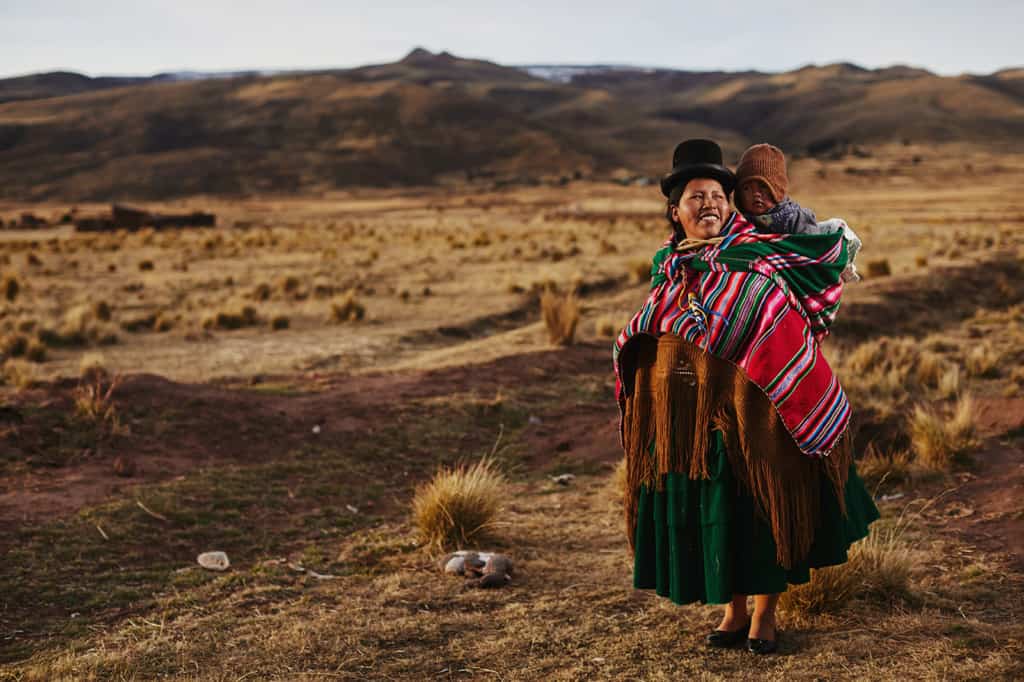
Bolivia — a beautiful highland nation — is found in west-central South America. This landlocked country is biologically diverse with a climate that varies from humid and tropical to cold and semi-arid. From the rugged Andes Mountains boasting peaks over 21,000 feet to the lowland plains of the Amazon basin, you will see a wide array of plant and animal life. You will also find Lake Titicaca, which is the highest navigable lake in the world.
Although the land is rich in natural resources, Bolivia ranks at or near the bottom of Latin American countries in health and development. Many rural areas lack clean water and basic sanitation, and the Indigenous people are particularly vulnerable to exploitation and trafficking. Although there are difficult situations in Bolivia, there are also stories of hope and many beautiful cultures to celebrate. Today we’d love to share some interesting facts about Bolivia that will help you get to know the country where over 93,000 Compassion-assisted children live.
Key Facts About Bolivia
Here are some quick facts you should know about Bolivia:
- Population: 11,639,909
- Capital: La Paz (administrative capital), Sucre (constitutional capital)
- Official language: Spanish and 36 Indigenous languages, including Quechua, Aymara and Gurani
- Area: 424,164 square miles (1,098,581 square kilometers). That’s about three times the size of Montana.
- Economy: Bolivia is filled with natural resources. The primary exports include natural gas, silver, zinc, lead, tin, gold, quinoa and soybeans. Just under half the population works in the service industry, while 29% works in agriculture. Over 20% of Bolivians hold industry jobs, which include mining, smelting, electricity, petroleum, food and beverages, handicrafts, clothing and jewelry.
Culture and Traditions of Bolivia
Bolivia is an extraordinary mix of native South American cultures and European influences brought by the Spanish. If you travel throughout the country, you may catch conversations in one of the 36 distinct Indigenous languages. Here are a few cultural facts to help you get to know Bolivia.
Religion: Nearly 77% of Bolivia’s population is Roman Catholic, while 8.1% is Evangelical and Pentecostal, and 7.9% identify as Protestant. About 5.5% of Bolivians do not claim a religion, and 1.7% identify with other religions. Some Indigenous communities continue to worship Pachamama, their earth goddess. While the Spanish influence is strong, some ethnic rituals and customs have been assimilated into commonly practiced Catholicism.
Clothing: It is difficult to define “typical Bolivian clothing” as there are so many unique ethnic groups and regional climates. The inhabitants of urban areas often wear clothes typical of Western countries — clothes such as jeans, shorts, T-shirts and dresses. In the highlands, Indigenous women wear colorful pleated skirts called “polleras.” The pollera is worn with a “manta” (a bright shawl), a frilled blouse and a bowler hat. Men will typically wear light cotton trousers and ponchos of vibrant colors. Before Spanish colonization, the national dress of the highlands was much simpler, consisting primarily of a long, belted tunic. However, colonial rulers mandated that Indigenous people dress in the style of Spanish peasantry.
In the tropical eastern region of Bolivia, traditional tribal clothing was a loincloth of cotton fiber or feathers. Necklaces made from bones, seeds, animal teeth and feathers were also worn. Fur coverings were used for warmth, and chiefs would cover their heads with feathers. However, in the 17th century, the European styles of long cotton dresses and pants were enforced by Jesuit missionaries.
General culture: Bolivians love soccer to a fanatical level, but they also enjoy racquetball, tennis, track and field, and swimming. Mountain climbing, rock climbing, biking, skiing and horseback riding are also popular pastimes. Carnival is one of the most important holidays for Bolivians and throughout Latin America. Carnival occurs in February or March just before Lent. It is a flamboyant festival with dazzling folk dances, extravagant costumes, lively music and spectacular feasts. The largest celebration takes place in the normally quiet town of Oruro, where many indigenous musical and dance groups gather to perform and compete.
Music and Dance of Bolivia
There are numerous musical and dance traditions in Bolivia since each ethnic group expresses itself uniquely. Most traditional music was created to be accompanied by dancing. Here’s a little more about just a few of the countless styles.
The Aymara and Quechua people groups blend Indigenous and European elements. In folk dances like the “palla-palla,” “waka-torkoris” and “morenada,” elaborately costumed performers depict a satirical view of European culture. “Diablada” is debatably the most renowned Bolivian dance. This “dance of the devils” features masked performers and is a main part of the colorful Carnival celebration in Oruro.
Traditional Bolivian musical instruments include the “charango” (Andean lute), the “zampoña” (panpipes) and the “quena” (notched vertical flute). A variety of percussion instruments such as skin drums, bronze gongs and copper bells add rhythm.
When the Jesuit missionaries from Spain and Italy emigrated to Bolivia, they brought their knowledge and love of classical baroque music. Jesuit missions taught the Indigenous Guarani people to make and play European orchestra instruments. Both Indigenous and European composers began to craft alluring, joyous music with a baroque structure. This new enchanting style became known as Bolivian baroque.
From the Andean music of Bolivia’s western mountains and southern valleys to the tunes of the Amazonian tropics and Jesuit-founded baroque, Bolivia is a country alive with music and dancing.
Food and Drink of Bolivia
Most Bolivian cuisine is a mix of Spanish and Andean influences. Because of the variety of geographical zones, favorite dishes vary by region. Common foods are meat, rice, quinoa, potatoes, carrots, hot sauce, cheese, milk and a variety of fruits. Here are a few delicious examples of Bolivian cuisine!
Plato paceño is a common lunch choice in Bolivia. This dish features large lima beans, corn, potato and fried cheese. Locals enjoy adding llajua, a famous Bolivian hot sauce, to spice up their plato paceño.
Quinoa and black bean salad is a simple, protein-rich dish. Quinoa is a popular and affordable staple of the Bolivian diet. Learn to make this salad here and bring it to your next potluck!
Sandwich de chola is made from a large bun stuffed with roasted pork, salsa, hot sauce and pickled vegetables. If you walked through the streets of La Paz, you could buy a fresh sandwich de chola from one of the street vendors.
Cocadas are sweet coconut treats! These cookies are similar to coconut macaroons, although in Bolivia they are typically baked into bars. The ingredients include flaked coconut, coconut milk, sugar, egg, butter and sesame seeds.
Mocochinchi, a cider made from dehydrated peaches, is one of most popular beverages in Bolivia. Along with peaches, mocochinchi includes raisins, cinnamon, orange juice, lemon zest and sugar. This refreshing drink can be bought in large glass jars at street corners, parks and plazas.
A Story From Bolivia: The Passionate Seamstress
As the sun rises over Cochabamba, Bolivia, a gentle whirring is heard throughout a house on the outskirts of town. Surrounded by threads, pins, scissors and different colored fabrics, Jimena begins the day at her sewing machine, enjoying her favorite hobby.
Jimena has grown into an industrious entrepreneur who loves to create clothing. As a young girl, Jimena often worried about the financial security of her family and would dream of ways she could help support them.
At age 7, Jimena enrolled in the Compassion Child Sponsorship Program at the local church. At her child development center, Jimena was encouraged to participate in vocational training. This opportunity was offered to motivate youths who wanted to study a skill they could eventually turn into a business. The different courses included screen printing, carpentry and graphic design, but dressmaking immediately stood out to Jimena!
Through the project’s alliance with a training institution, Jimena began a four-month intensive course in dressmaking, where she learned to make clothes like T-shirts, pants, simple blouses, vests, jackets and dresses. After finishing the foundational course, she is now being trained to specialize in women’s blouses. In the future, she is planning to learn to make polleras — traditional Bolivian skirts — because most of the women in her neighborhood wear them.
Jimena has just finished ninth grade, but she already has her own business repairing clothes and completing other small sewing projects. She loves expressing her creativity through sewing — all while helping her family financially. Her parents are very proud that their daughter is an entrepreneur at such a young age and is learning valuable business skills for the future.
“I used to see sewing as just a way to support my family, but once I began to study it, I began to like it more. Now I would like to have my own company,” Jimena says.
BONUS: Fun Fact About Bolivia
Bolivia is home to Salar de Uyuni, the largest salt flat on the earth, which covers about 4,085 square miles (10,582 square kilometers). That’s larger than Rhode Island and Delaware combined! After a rainfall, a thin layer of water creates a reflective surface, turning the flat into the largest mirror in the world.
Photos of What Daily Life Is Like in Bolivia
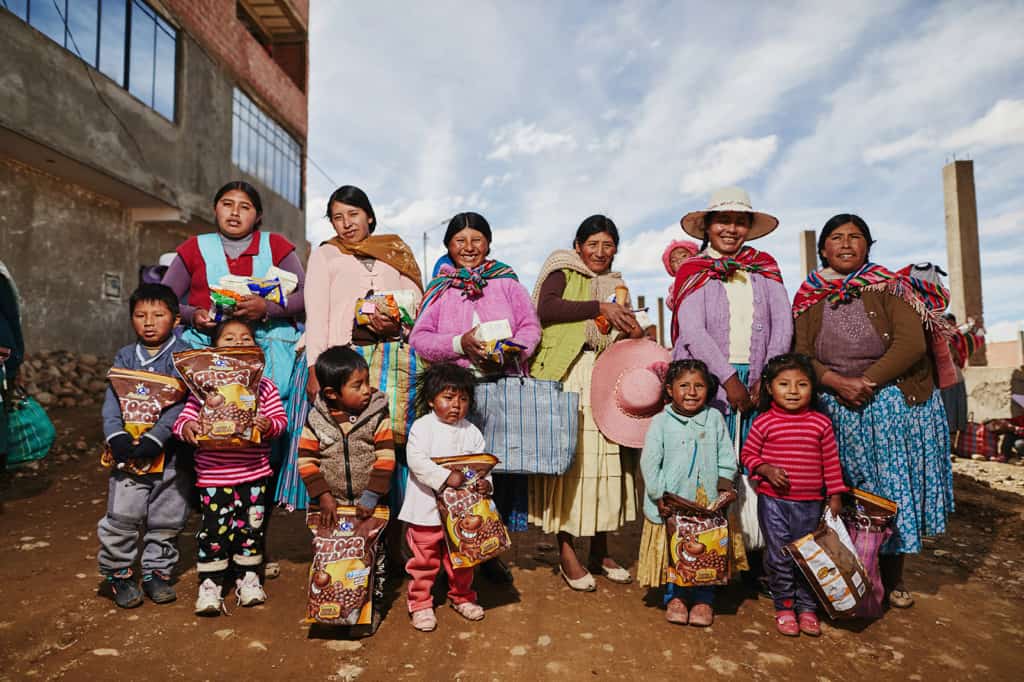
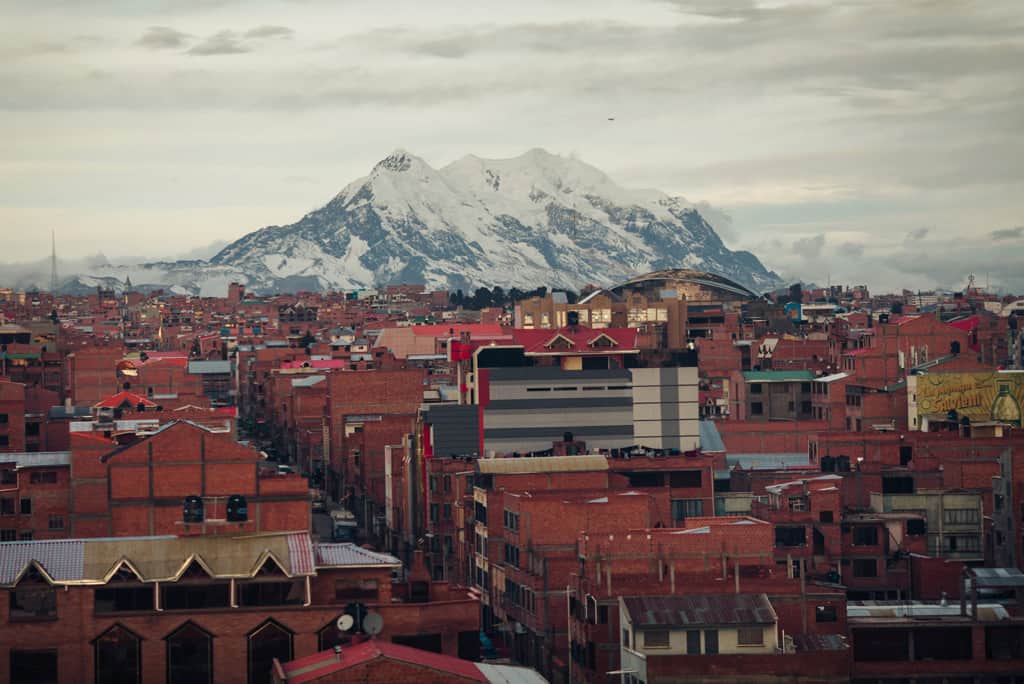
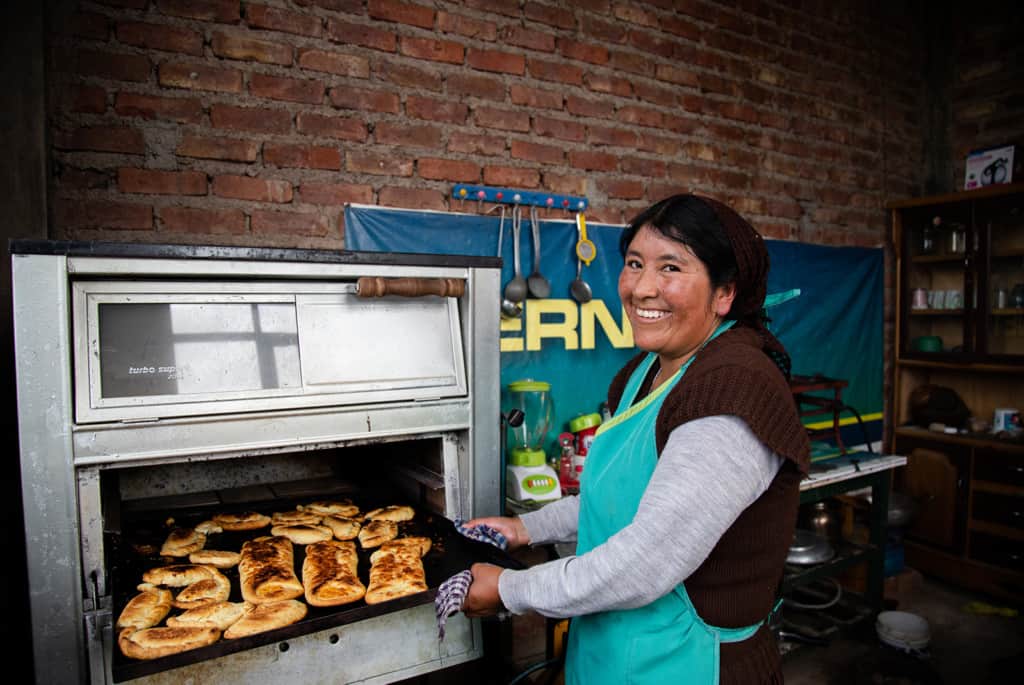
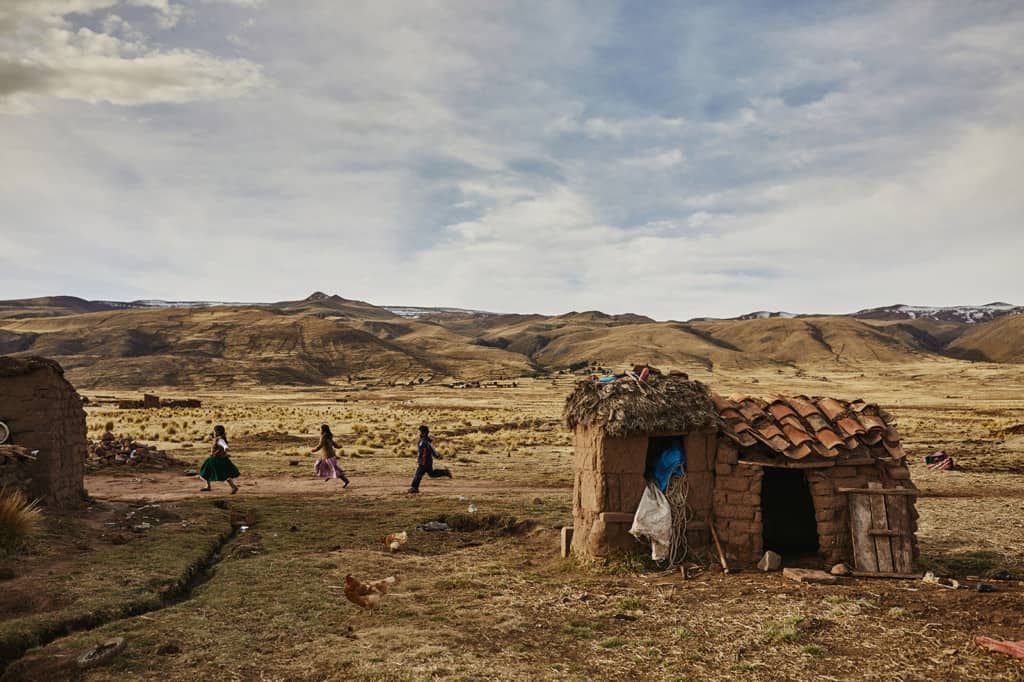
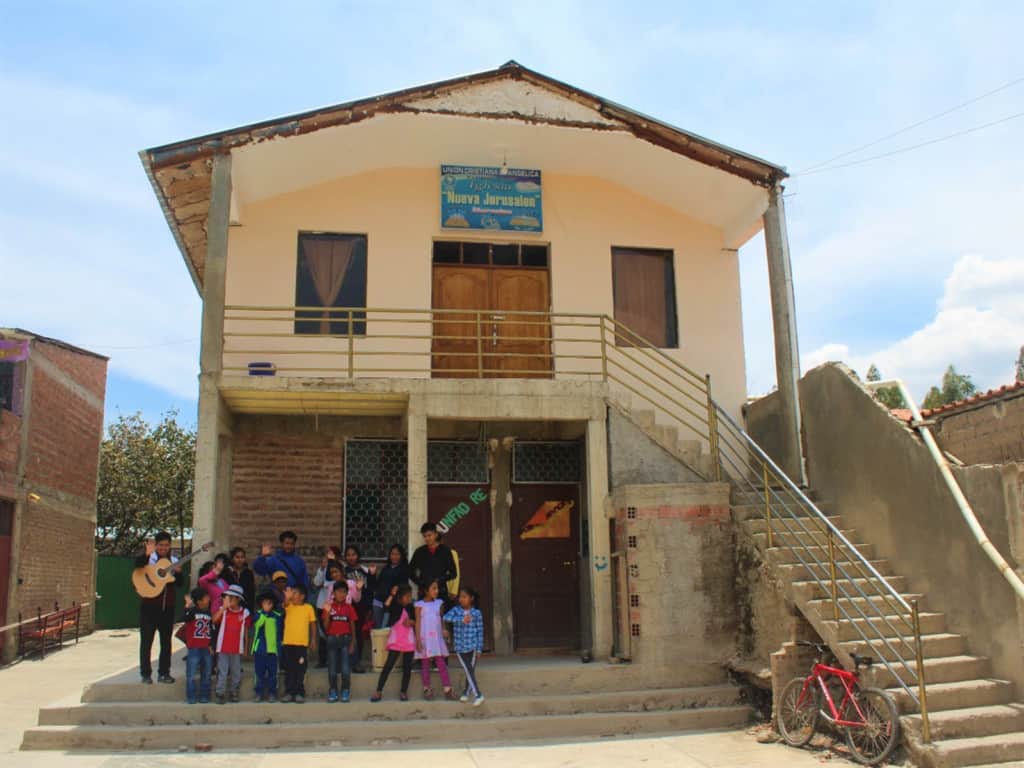
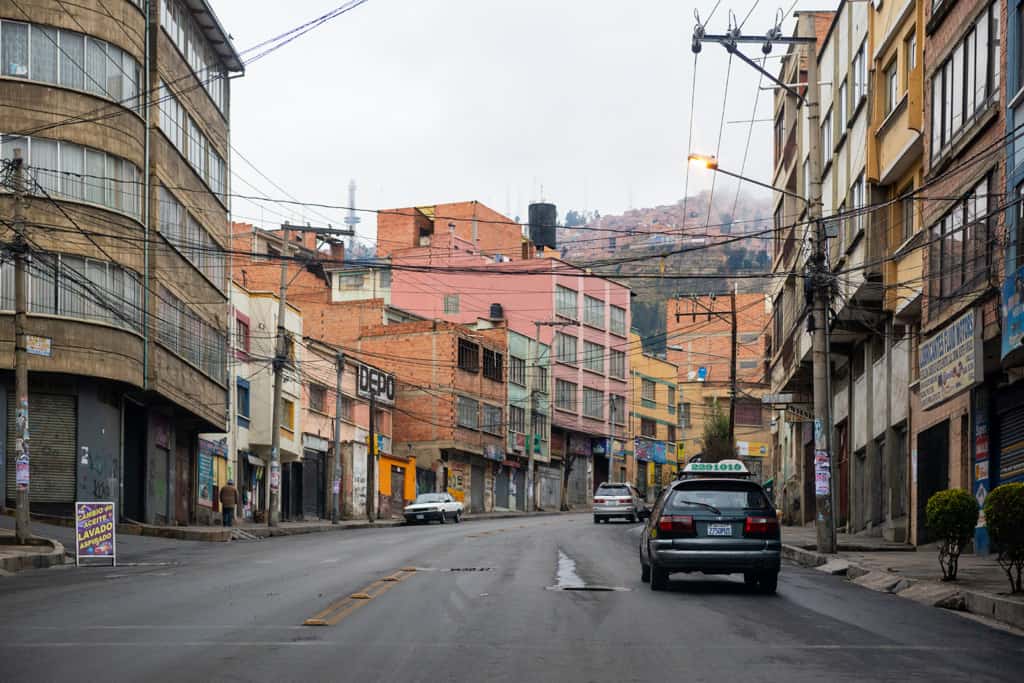
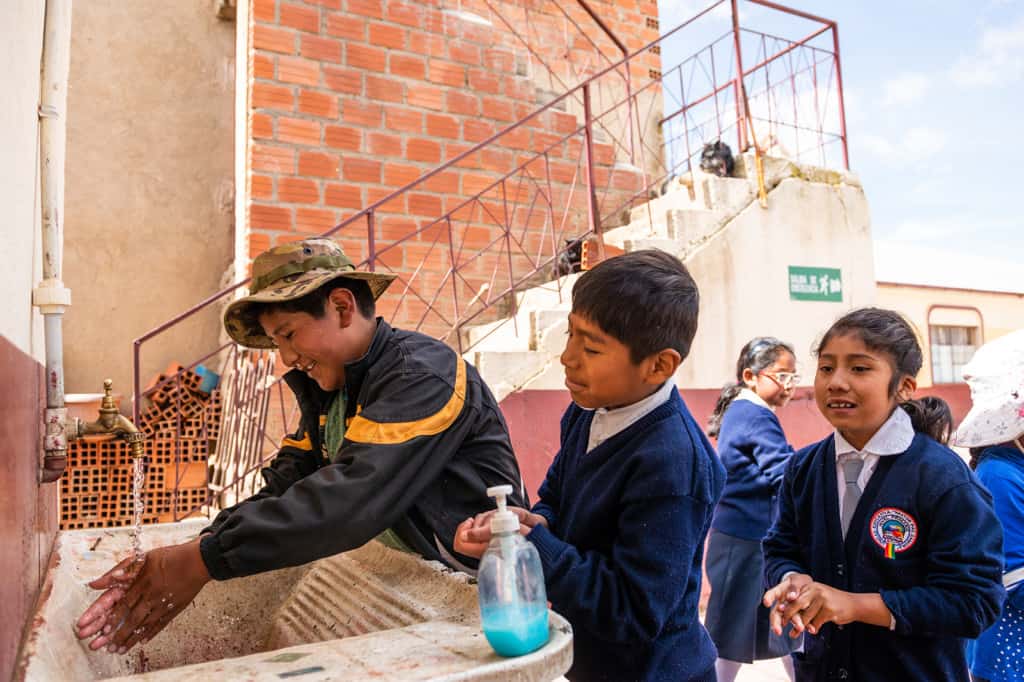
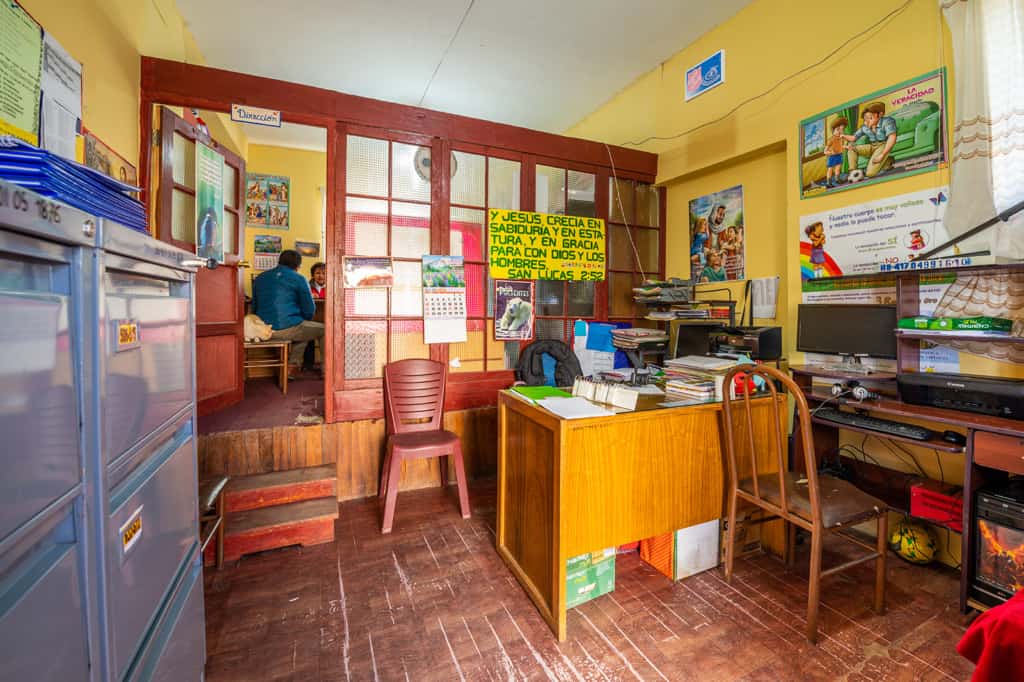
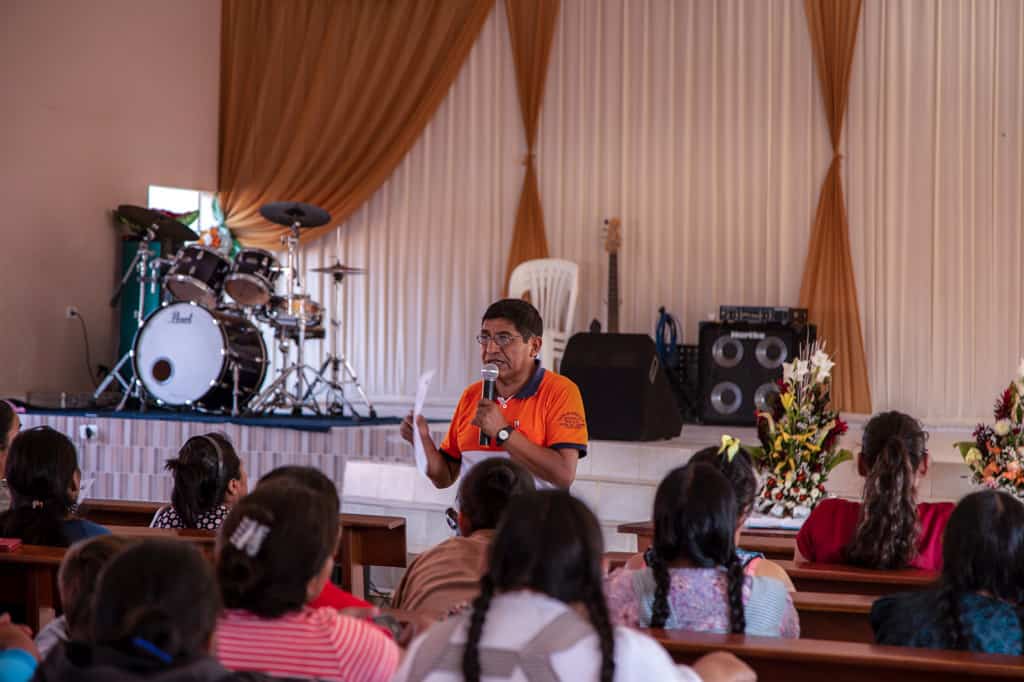
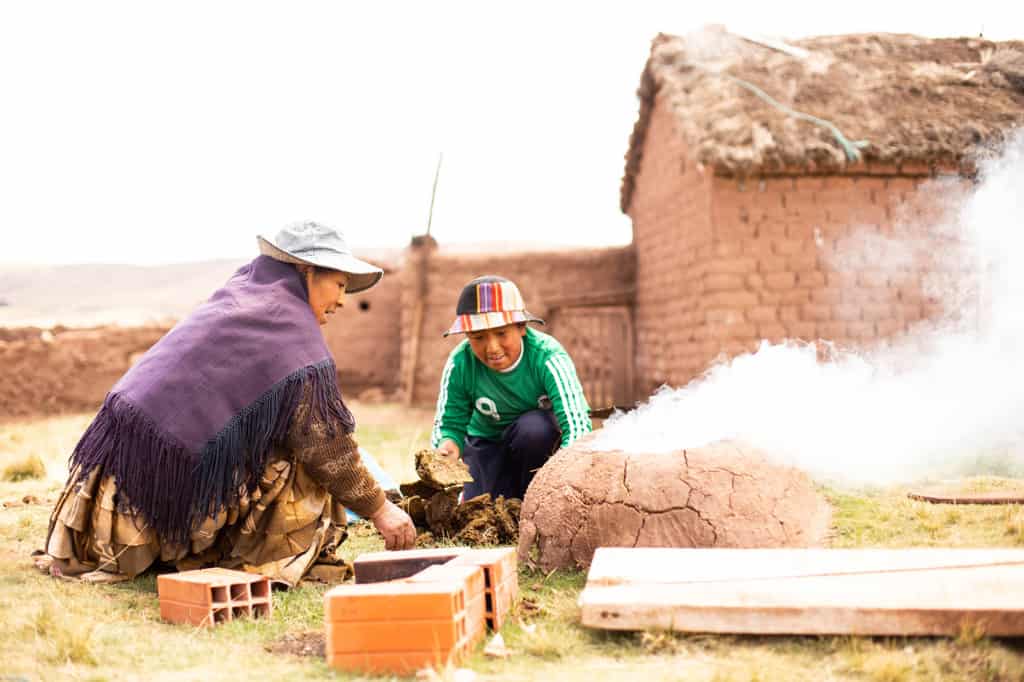
Do you want to keep learning about the beautiful country of Bolivia?
Facts About Compassion and Bolivia ›
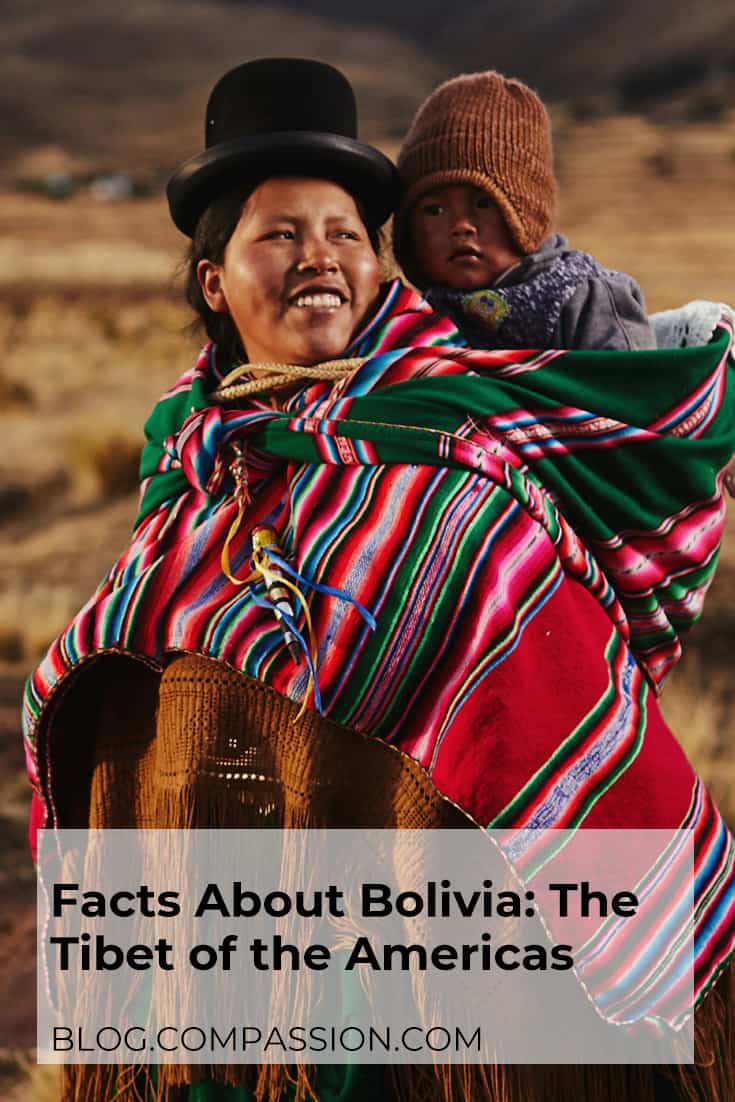
Each week on the blog, we’re posting an article of facts about a different country where sponsored children live. Keep an eye out for the countries that interest you the most!

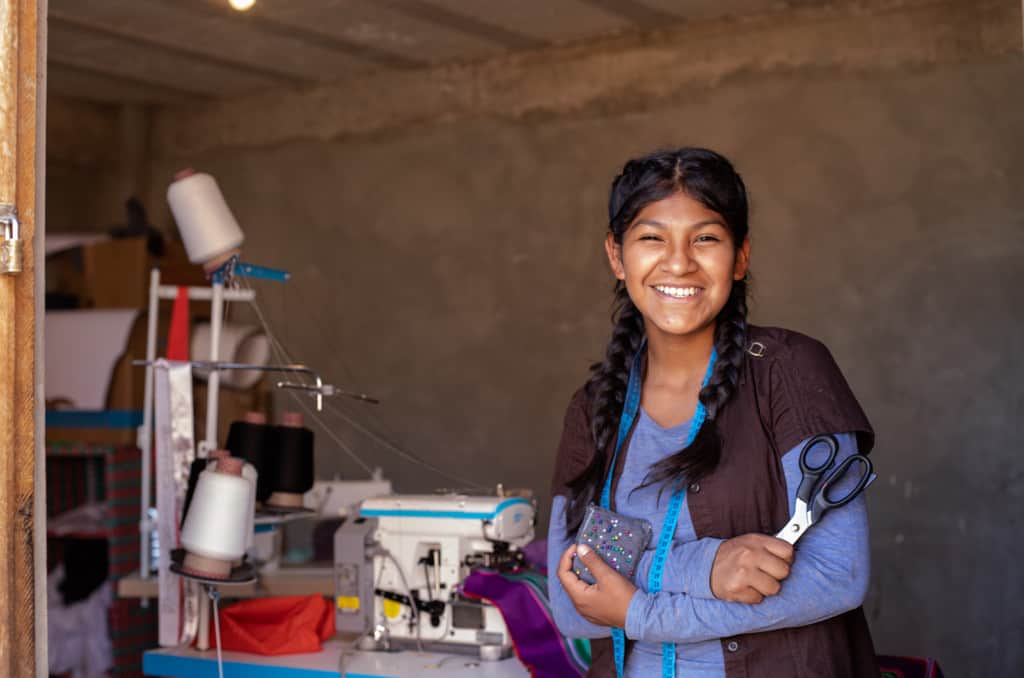
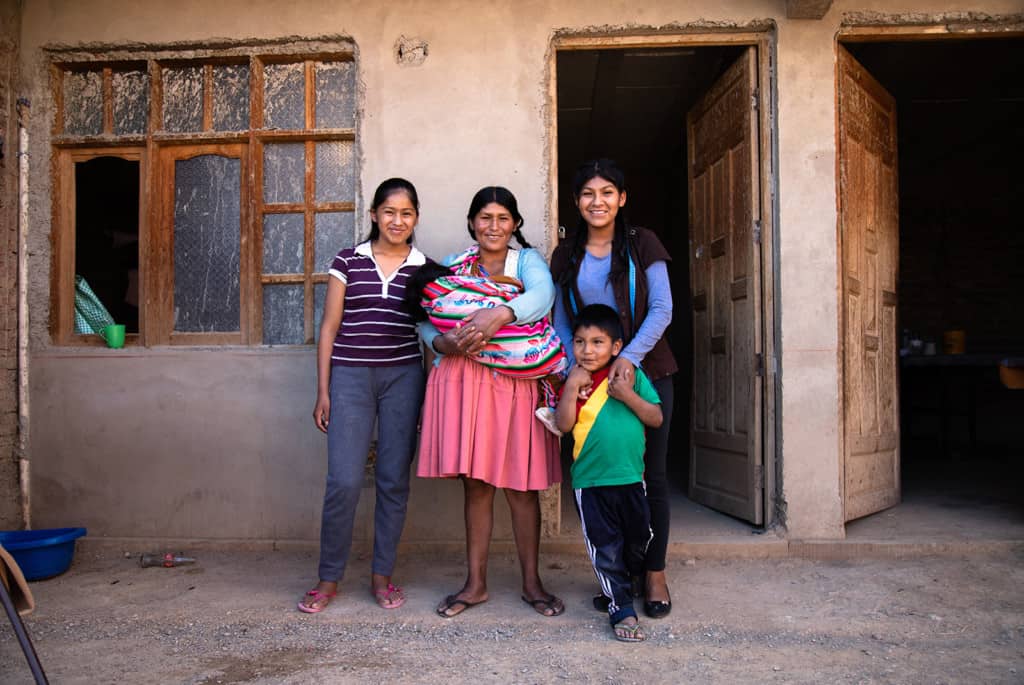
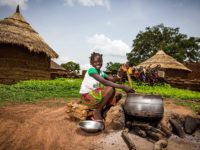
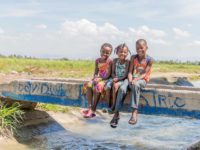
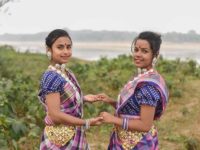
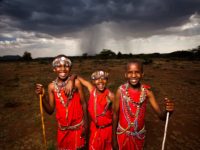


50 Comments |Add a comment
Thanks so much for creating this blog. As a couple of our Compassion kids graduated, we recently sponsored a sister and brother in Bolivia. This was so helpful in getting oriented to their country. It is beautiful and we would love to visit!
This was fantastic thank you so much! I feel a little closer to Elio now being able to understand his culture a little better! I really hope to be able to visit him for the first time very soon.
Thanks so much for the wonderful information about Bolivia! I first learned about Bolivia doing a school project when I was 12. When the opportunity arose to sponsor a child from Bolivia, we were thrilled to be able to do so!
I don’ t write to Isaias nearly as often as I should or would like to, I was told long ago to be sure not to flaunt our first world privilege (NOT by anyone involved in Compassion International) so I have struggled to find ways to be encouraging and share Jesus’ love and care with him. I do let him know that we pray for him and his family; his studies and his love of soccer. Thanks for giving me a new avenue of communication with him about his country! Blessings for all you are doing for him!
This is a wonderful way to learn about Bolivia. I hope to be able to visit Kevin in person some day. Thank you for all of the great information!
Hello Jennifer! We know visiting you child can be so life changing for both of you! We hope you get to see Kevin one day! ? ~Taryn
Thank you for taking the time to prepare such a thoughtful blog post. It gave me a much better understanding of Deysi’s country. Thank you for continuing to be there during this difficult year. Blessings.
Hello Melody, we are so glad this was helpful! Thank you for being in Deysi’s life! ? ~Taryn
Our Moises frequently comments on food that he enjoys, thanks for describing favorite Bolivian dishes. Moises is 16 now and I feel better informed as I pray for him as you described the industry and jobs available to him. Thank you and May God’s face continue to shine on Compassion’s work in Bolivia.
Thank you for sharing, Karen! We appreciate you for investing in Moises’ life so well! We are honored to partner with you, and are blessed that you enjoyed this post. ?
Thank you for the interesting pictures and facts about Bolivia. I am motivated to keep up my communication with my sponsored child.
God bless you all abundantly.
We love that you are inspired to write more letters to your sweet child, Amelia! Thank you for your generous heart! ?
We were blessed to visit our Compassion children in Bolivia and Peru 2 years ago. We’re so thankful for the care Compassion is still giving to the kids during these trying COVID times! Reading this blog makes me want to return to Bolivia!
What a joy that you were able to visit your precious kiddos, Dee! During these difficult times, we are honored to provide for these children and their families! Thank you for partnering with us in sponsorship! ?
What a beautiful smile Jimena has. Thank you for this blog to help me know more about Fabricio’s country. God bless the people of Bolivia and Compassion International for all that they do.
We are so glad this blog post has helped you relate to Fabricio more! Thank you for sharing! ?
This was a wonderful presentation. Naomi has shared much about Bolivia and this brought it to life. Such a wonderful culture.
Wilda, we are so happy that you were able to learn more about Naomi’s country! Such a wonderful and vibrant culture indeed! ?
I am thankful that you folks have created this blog and sent it to us. I’ve sponsored my Joel for 13 years (how can it be?!?!) and I love how this makes me feel closer to him! I’ve always wondered…….how would HE say his name? I’m guessing not with the American ‘J’ sound at the beginning, but would the J say /h/ like it does in the word Jose´ ?
Hello Gennae! Thank you for sponsoring Joel for that past 13 years! I believe the ‘J’ would be pronounced like an ‘H’. It makes our hearts so happy that this blog post helps you feel closer to him. ?
Thank you so much for sharing this blog about Bolivia. I am proud to have sponsored Angela for 5 years and have enjoyed this blog learning about Bolivian culture. I’m too old and with health issues and cannot travel abroad, but would have loved to have visited this beautiful country and visit Angela.
Hello Judy, thank you for being an encouragement to Angela. We know how much of an impact even prayer and thoughtful letters can have on your child. Your voice matters in her life! ?? ~Taryn
Thanks for sending the information on Bolivia. Now I can understand more fully the life that Nilser lives.
Hi Jayne! Thank you for being an impact in Nilser’s life!? ~Taryn
Thank you for this blog! I chose to support a child in Bolivia because I did my student teaching there. It was nice to see pictures again and remember. Blessings on the continued work Compassion is doing there!
Thanks for the great info and photos on the country where our sponsored children live!
Wow. What an interesting and diverse country! I knew about the soccer as One of my girls really enjoys playing. I hate Covid has cut us off from each other and I don’t read Spanish well. I anticipate a few letters when we are more out of this pandemic. Thank you so much for this blog. It has helped me understand what Compassion does and the country my girls are from.
Hello Jenny, thank you so much for continuing to encourage your sponsored children during this time! We know that has a huge impact on their self esteem as they grow! ??~Taryn
I thoroughly enjoyed reading about my sponsored child, Juvenal’s homeland. It was wonderful to see and hear about his culture. It gave me a connection to him that I will cherish! God bless him, his family and all of the Compassion children! Thank you for sharing!
Hi Karen! Bolivia is such a fascinating country! Thank you for sponsoring Juvenal and being an encouragement to him during this crazy time! ?? ~Taryn
Thank you so much for this very informative and interesting article. It definitely helps me to understand my very sweet Jorge, who writes the absolute best letters. I love him and his family so much. I definitely want to continue to learn more about Bolivia. I need to send another letter to my precious boy. Thank you so much.
Hello Patsy, we are so glad you found this helpful! Thank you for blessing Jorge!??~Taryn
Thank you for the information and pictures of Bolivia! It is a country of much more variety than I had imagined. I am encouraged to learn that a large percentage of the people are Christians including catholic, penecostal, and protestants.
Brings back precious memories of the Compassion tour I took two years ago to Bolivia to meet my sponsored child and his family. What an amazing and beautiful country and people!
Great information. Thanks for sharing!
Great blog! I especially liked the Passionate Seamstress portion. Learning about the people, music, and dance culture, and viewing the photos will help me understand and write letters to Fabian, my sponsored child. Thank you.
Thank you for the interesting facts on Bolivia
Very interesting and informative. Thank you so much for the information. It really helps me understand and appreciate the wonderful things about Bolivia and where my sponsee lives.
I have such joy in sponsoring Oliver and this email really makes my day.
That is wonderful Dave! Thank you so much for blessing precious Oliver! ?~Taryn
I really enjoyed reading about Bolivia as one of our sponsored children lives there. The pictures were especially nice. Thank you for doing this…..helps us feel closer to our child.
Thank you for giving me a picture and knowledge of where our child lives. We now can relate to him better talking about his life and day to day activities! Thank you so much for all this information!
I really enjoyed learning about Bolivia, the home of my sponsored son. Thank you for sharing!
So much color! I love learning about Bolivia, where my child lives. Thank you.?
This is a wonderful commentary and very helpful
May God bless and keep the Bolivian people.
This is my country and I love it and miss it so much. I sponsor two children and I hope to visit with them one day. Thank you for featuring Bolivia today!
Hello Connie, thank you so much for all you are doing for those two wonderful kids! ??~Taryn
OMG!!!!! That’s my kid’s home!!!!! Holá José!!!! The one I sponsor!!!! Love seeing this!!! God bless!!!!!
Wow Jason! That is amazing! Thank you so much for blessing him! ??~Taryn
Amazing country.. thanks!
Beautiful people and message. Thanks